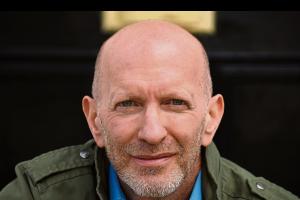Lifestyle
Jewish Historian Calls for Re-evaluation of Limerick Pogrom Definition

A prominent Jewish historian, Simon Sebag Montefiore, has expressed his willingness to reconsider the designation of the events known as the Limerick Pogrom. This statement was made during a virtual appearance at the Hunt Museum, part of the Limerick Civic Trust’s heritage week program. The Limerick Pogrom, which occurred from 1904 to 1906, involved a campaign of economic boycotts and intimidation against the local Jewish community, instigated by Fr John Creagh, a Redemptorist priest who openly disparaged Jewish individuals in a sermon.
Montefiore’s remarks are significant given his family background; his ancestors, the Jaffes, were directly affected by the events. He acknowledged that the violence in Limerick was not as severe as that which occurred in other countries during the same period. “The word pogrom comes from the Russian ‘to destroy’. It doesn’t mean there has to be a massacre and people killed. People were stoned and beaten up, houses were smashed. This is still a pogrom,” he stated.
In a discussion moderated by Thomas Wallace O’Donnell, Montefiore elaborated on the nature of the violence, citing conflicting accounts regarding the protection offered to Jewish residents by the Royal Irish Constabulary. While the police claimed they were safeguarding the Jewish community, many Jews reported feeling unprotected. Montefiore admitted, “By the standards of the Russian pogroms, this was not Russian cassocks riding through the streets of Ukraine.” He concluded by expressing a willingness to refer to the events simply as the “Limerick events.”
The re-evaluation of the term comes at a time of heightened scrutiny of Ireland’s relationship with Israel. In December 2024, Gideon Sa’ar, Israel’s foreign minister, announced the closure of the Israeli embassy in Dublin, citing what he described as the “extreme anti-Israel policies” of the Irish government. This has prompted discussions about alleged anti-Semitism in Ireland, with Montefiore referencing the Limerick Pogrom in a now-deleted post on social media platform X, where he has a following of nearly 100,000.
In response to Montefiore’s comments, David O’Brien, chief executive of Limerick Civic Trust, emphasized that labeling the city as anti-Semitic based on a historical event is unjust. This sparked a dialogue between O’Brien and Montefiore, leading to the historian’s virtual appearance at the Hunt Museum.
Montefiore’s intervention not only sheds light on the historical context of the Limerick Pogrom but also highlights ongoing discussions about historical memory and its implications for contemporary society. The willingness to compromise on terminology signifies a broader effort to foster understanding of past injustices while addressing current perceptions and relations between different communities.
-

 Top Stories4 weeks ago
Top Stories4 weeks agoTributes Surge for 9-Year-Old Leon Briody After Cancer Battle
-

 Entertainment2 months ago
Entertainment2 months agoAimee Osbourne Joins Family for Emotional Tribute to Ozzy
-

 Politics3 months ago
Politics3 months agoDanny Healy-Rae Considers Complaint After Altercation with Garda
-

 Top Stories2 months ago
Top Stories2 months agoIreland Enjoys Summer Heat as Hurricane Erin Approaches Atlantic
-

 World3 months ago
World3 months agoHawaii Commemorates 80 Years Since Hiroshima Bombing with Ceremony
-

 Top Stories3 months ago
Top Stories3 months agoFianna Fáil TDs Urgently Consider Maire Geoghegan-Quinn for Presidency
-

 World3 months ago
World3 months agoGaza Aid Distribution Tragedy: 20 Killed Amid Ongoing Violence
-

 World3 months ago
World3 months agoCouple Convicted of Murdering Two-Year-Old Grandson in Wales
-

 Top Stories4 weeks ago
Top Stories4 weeks agoNewcastle West Woman Patricia Foley Found Safe After Urgent Search
-

 Top Stories2 months ago
Top Stories2 months agoClimbing Errigal: A Must-Do Summer Adventure in Donegal
-

 Top Stories2 months ago
Top Stories2 months agoHike Donegal’s Errigal Mountain NOW for Unforgettable Summer Views
-

 World3 months ago
World3 months agoAristocrat Constance Marten and Partner Convicted of Infant Murder








